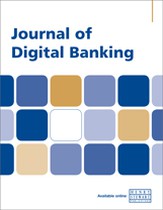We need banks, but not only in banking: The case for user-centric platform propositions beyond financing
Abstract
Banks face the stark reality that they may not be part of banking’s future. Their customers have an increasing range of options both for their banking services and in other areas of their lives such as housing, health care, education, travel and entertainment. This is not only a threat but also a real opportunity for banks if they start to think innovatively about how they can support their customers with what they really need. This is clear in the difference between how customers and banks see decisions about housing. For banks, what is important is the mortgage, but for customers, the mortgage is only a small (though significant) part of their desire to find, finance and settle in their dream home. Today’s homebuyers spend a great deal of time on housing portals; they ask Alexa which mortgage they should be getting and use comparison sites and brokers to search for financial products. That means the relationship with their bank is diminished and ends up commoditised, leading to reduced margins and an unsustainable business. Banks need to respond to this new world by unlocking new sources of value, recognising that this will be not just in banking, but also in the broader ecosystems centred around customer needs. This is where platform business models excel, but the transition to these kinds of models will not be easy for banks. It will require a clear vision and strategy, and new, hyper-personalised digital propositions that truly meet the needs of users (consumers and producers). This paper analyses how banks will need to identify partners that can support them in that broader ecosystem. All this will require banks to make choices about their technology and smart use of data.
The full article is available to subscribers to the journal.
Author's Biography
Adem Kader is a strategy and innovation expert at PA Consulting, where he specialises in developing growth strategies and innovative propositions that delight users. His work in financial services focuses on growth, platform business models and digital innovations facing retail and small and medium-sized enterprise (SME) segments. He holds a Bachelor of Science in engineering, computer science and maths from Swarthmore College, Pennsylvania, USA, where he focused on robotics, machine learning and neural networks.
